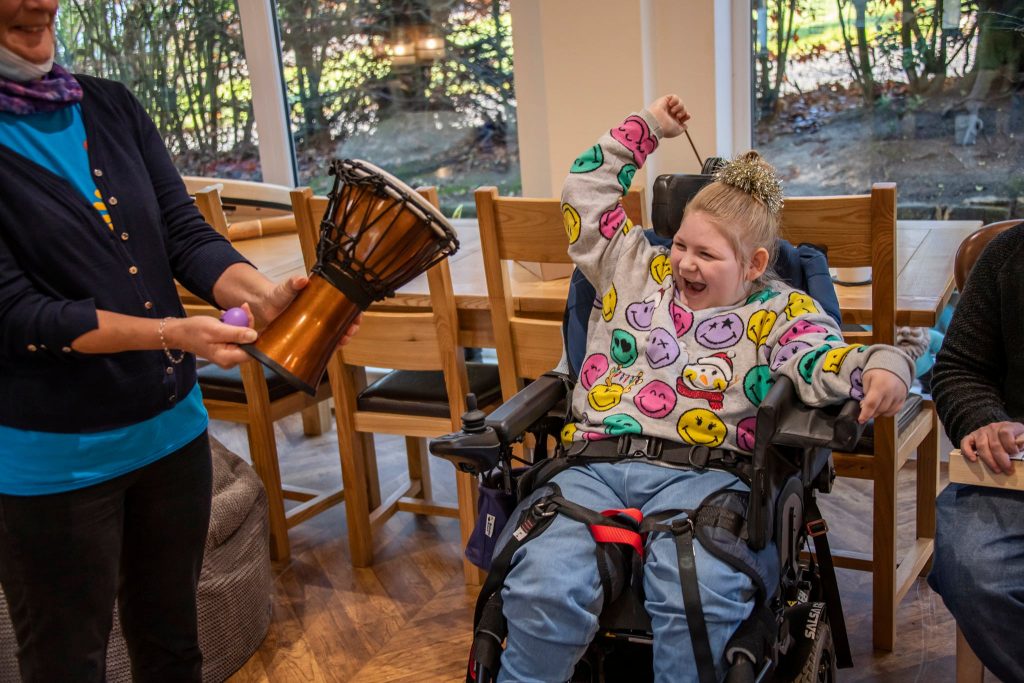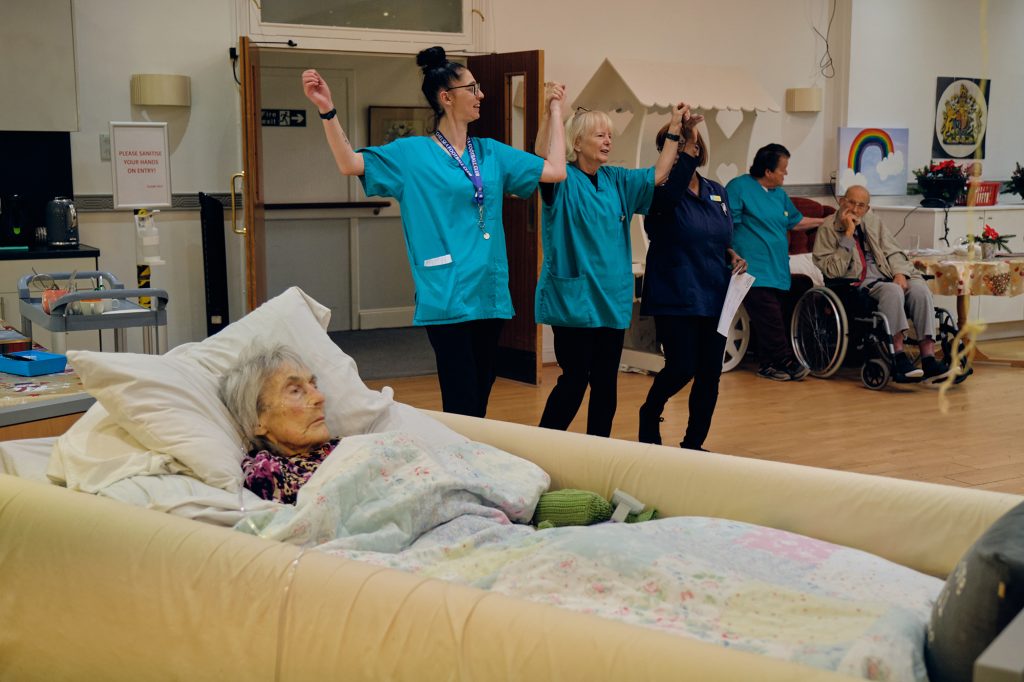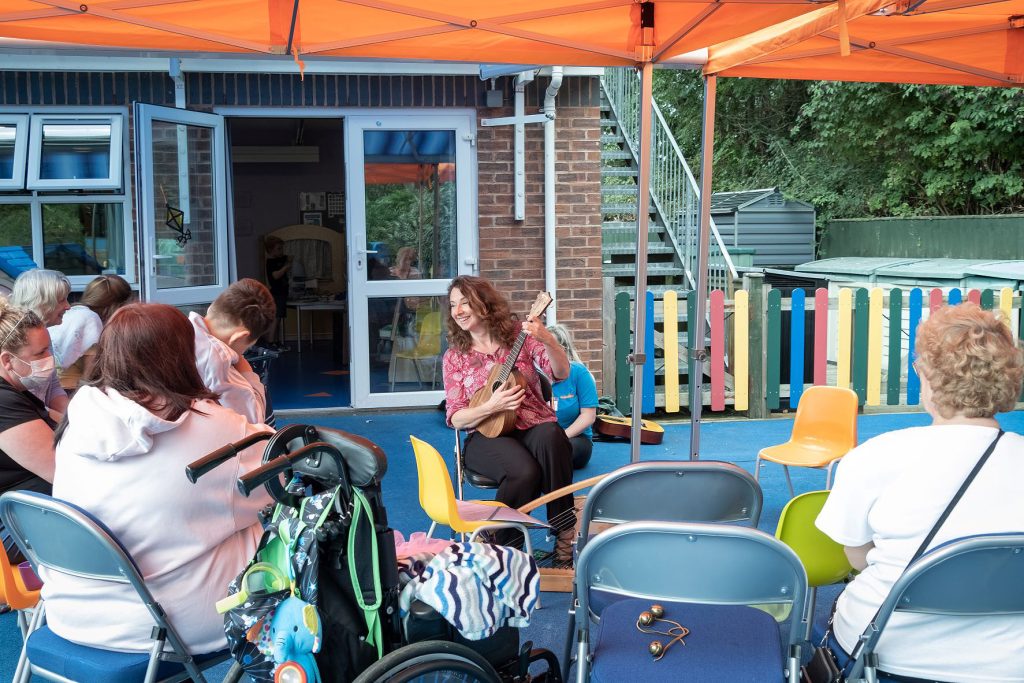Hospices and palliative care
For people receiving palliative care, live music can bring physical and mental health benefits – whatever age they are, or illness they’re experiencing.
Our live music stimulates the senses and offers comforting contact for those who are critically ill, their families and health and care staff looking after them. They can help people feel relaxed and connected to others. Enjoying music together can relieve frustration, stress and isolation, and reduce the perception of pain.
Did you know?
Music can reduce anxiety, depression, pain, fatigue, and even improve hope in adults with cancer. It also benefits heart rate and blood pressure.[1]
Music can reduce anxiety in patients on mechanical ventilation by lowering respiratory rate and blood pressure. It also helps improve sleep, reduce sedative use, and shorten time spent in ICU.[2]
Listening to music can help the brain make new connections and recover better after a stroke.[3]


Following our live music experiences:
98% of people who were seriously ill said their mood improved.
More than four in five (83%) felt less stressed and anxious.
94% of people caring for seriously-ill people noticed increased staff morale.
Find out about our work in hospitals and care homes and day centres.

Aintree Hospital Critical Care Unit, Liverpool
“I was looking after a palliative patient who had no family or friends. The music was very touching and therapeutic at this very sad time.”
Louise McQuillan, Critical Care Research Nurse, NHS Lothian
“’Is that music out there? Is it okay if we come out and have a listen?’, said the family member of a patient who was at the end of their life. ‘Is it ok if I sing along?’, asked the patient themselves. I thought this was such a lovely example of live music easing someone’s transition in their palliative care.”
Staff member at Little Haven’s Children’s Hospice, Essex
“One of the mums said her daughter Ava had the biggest smile on her face all the way through the live music and was happily bashing her drum. She told me that when you have a child with Ava’s condition, people tend to speak to them as toddlers and not their actual age. So, it was a breath of fresh air to have something more age appropriate for her to engage in.”